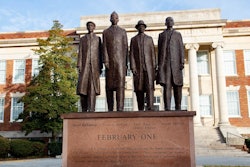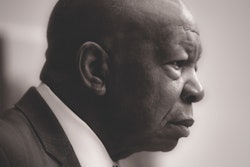The resurgence of the Black Lives Matter movement, the violent death of George Floyd and the global protests that ensued have triggered a reckoning in many institutional spaces, including American law schools. Concerned law professors and deans have examined their courses and curricula to determine what changes need to be made to address issues of racism and bias in the United States.
Southern University Law Center (SULC), the University of New Mexico School of Law and the University of Southern California Gould School of Law are among the numerous institutions that have taken action to address social injustice amid mounting incidents of police violence against African Americans and in support of the related protest movement.
At USC Gould School of Law, Professor Camille Gear Rich sent a memo to her colleagues proposing a required course specifically addressing racism.
“In the summer of 2020 during the tide of Black Lives Matter protests sweeping the country and in reaction to George Floyd’s death it seemed like a focusing moment for the entire nation,” Rich says, adding that it was also a time “for law schools to reflect on the ways in which their curriculum was either preparing or disadvantaging students” in connection with the ethical treatment of others, the pursuit of social justice and how best to inform and advise their clients about the repercussions of their decisions.
In addition, inequities such as the disproportionate impact of COVID-19 on communities of color and recent measures to suppress Black voting also led to revisions and discussions with other faculty and, finally, to the new course “Race, Racism and the Law” that will be offered as a requirement for graduation beginning with the class of 2024.
Rich, who is founder and director of PRYSM: The USC Initiative for the Study of Race, Gender, Sexuality and the Law, says her memo grew out of “a series of conversations in the law school over a two-year period about the need for some more substantive opportunities for students to engage with the important role race has played in shaping legal concepts and doctrines in the United States.”
But the events of 2020 added to that necessity.





















